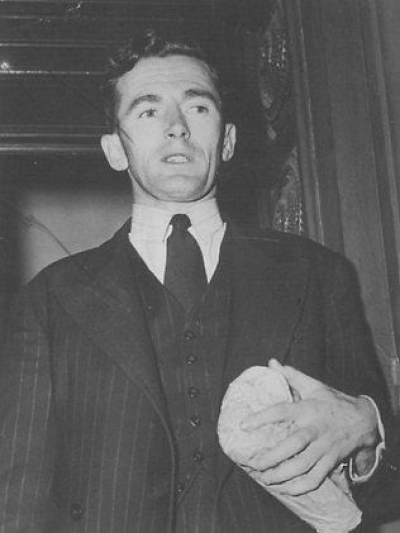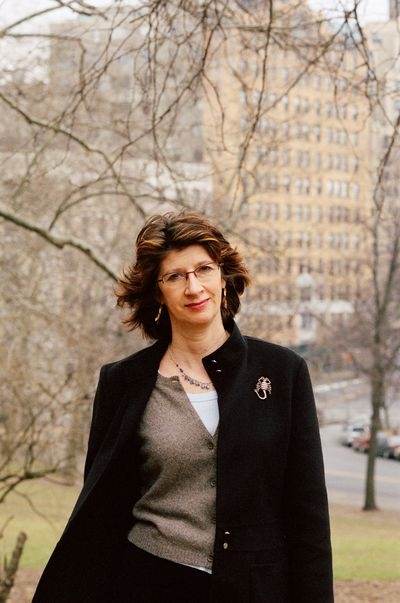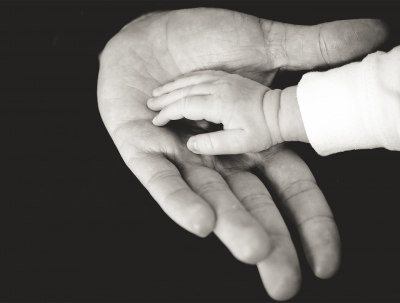La Trobe University Essay
Last month it was autobiography’s turn, when David McCooey examined recent Australian memoirs (La Trobe University Essay, ABR, May 2006). Now it is biography’s turn: the genre will be the subject of the 2006 Australian Book Review/La Trobe University Annual Lecture, titled ‘Matters of Life and Death: The Return of Biography’. Our distinguished lecturer is Professor Ian Donaldson, Director of the ANU’s Humanities Research Centre, head of the latter’s new Biography Institute, and Consultant Editor for The Oxford Dictionary of National Biography. He is a general editor of The Cambridge Edition of the Works of Ben Jonson (due for publication in twenty-five volumes in 2007), and is completing a life of Jonson for OUP.
... (read more)La Trobe University Essay | 'A BIG LIE: Manning Clark, Frank Hardy and "Fictitious History"' by James Griffin
‘People are not entitled in a civil society to pursue a malicious campaign of character assassination based on a big lie.’ This was Andrew Clark, son of the historian Manning Clark, expressing understandable outrage on behalf of his family. The issue was the infamous allegation, based on nebulous evidence, that Manning was ‘an agent of Soviet influence’ and had been awarded the Order of Lenin. Unfortunately, as the Clarks will know, the big lie, even when refuted, spreads across generations. Although the onus is supposed to be on the accusers to prove their allegations, in reality it is easily, plausibly reversed.
... (read more)Famous Battles in the War between Words and Music: From Monteverdi to Puff Daddy
An excuse first. This can only be a magpie’s look at a marriage – between poetry and music – that has a near-infinite history of complex living arrangements, recurrent divorces, remarriages and impromptu de facto cohabitations. I’ve chosen a few marital battles of particular interest to me, a writer for whom song is a sometime thing. I’d like to claim those battles as representative of some epochs and musical styles, at least within various Western traditions; they are certainly representative of my musical obsessions.
... (read more)Last year, in the Australian Book Review/La Trobe University Annual Lecture series, Ian Donaldson gave a sparkling talk on biography. He told us that it has emerged as something of a cultural phenomenon in recent years, with a biography section at the front of many bookshops. We now know that the genre has endless possibilities (biographers have written about London, Paris, the pineapple and the potato), and that, despite its dissenters, biography has even become acceptable within the academy. My brother, a paediatrician who works in intensive care, has been known to end telephone conversations by saying: ‘Gotta go, got lives to save.’ Ever since Ian Donaldson’s talk, with its wonderful title, ‘Matters of Life and Death: The Return of Biography’ (ABR, November 2006), I have felt able to say: ‘Gotta go, got lives to write.’
... (read more)Australian art criticism is a toothless pander that may not even exist. At least that is what some of this country’s most prominent critics, past and present, think. Christopher Heathcote, for example, who was senior art critic for The Age during the early 1990s, believes that art criticism has ‘been shut down by vested, mainly institutional, interests’ and that the system rewards only the ‘most servile conformists’.1 In his opinion: ‘Serve out your time brown-nosing the bureaucracy, and you too will land a cushy sinecure in some part of the museo-academic ziggurat.’
... (read more)Moving house recently reacquainted me with my books as I handled each one, packing and unpacking, dismantling the shelves from under them, banging the shelves together in the new place and lining up the books in a jumbled vestige of the old order. Books carried round for half a lifetime, books read more than once, books that will never be read, gifts, enthusiasms, bearers of memory and desire. Arranging books is something we all must do, culling and keeping in mysterious ways that reflect ourselves and our circumstances.
... (read more)A couple of months ago, driving with my daughter just outside the wheat-belt town of York, Western Australia, we came across a ‘28’ parrot that had just been struck by a car. I scooped it up in a cloth, and my daughter held it on the back seat until we could get home. Having been bitten numerous times by those ‘strong and hooked’ beaks, I warned her to be wary. But the parrot – a splay of emerald, turquoise, black and yellow feathers – was too dazed to bite, and clearly had a broken wing. Though we’ve always called these beautiful birds 28s, technically they are a ring-necked parrot, and possibly even the Port Lincoln variety of ring-necked. The demarcation lines between varieties are hazy. The local ‘nickname’ matters as local names do. We eventually handed the injured bird over to the local ‘bird lady’, who later let me know that it had died due to massive brain damage. My daughter doesn’t know it died. She said it was the closest she’d ever come to something so ‘amazing’. I left it at that.
... (read more)At first, you find the claim that you resemble your parents implausible. Later, you find it unflattering. But there are moments when you glimpse someone in a mirror and only belatedly recognise yourself. These are the moments when you realise – it is in equal parts chastening and reassuring – that if you are moving through time as an image of your parents’ past, their image is waiting for you in mirrors: they are the ghosts that haunt your future, as it were.
... (read more)In the teaching of copyright, it is usually said that copyright is an economic right. In Arnhem Land, they think otherwise. In 1990, I attended a meeting of Aboriginal artists in Maningrida. These artists had been involved in a copyright infringement case concerning the unauthorised reproduction of works of art on T-shirts. The case had settled, and the purpose of the meeting was to discuss the division of the spoils. The case involved a number of artists and different infringements by the same infringer.
... (read more)La Trobe University Essay | 'The Geist in the Mirror: Harold Stewart, James McAuley and the Art of Translation' by Keith Harrison
Ern Malley aside, Harold Stewart and James McAuley are poetic confrères in a region of Australian letters that has been largely overlooked. McAuley (1917–76), who translated only intermittently from the German, gave us poems by Stefan Georg, Karl Haushofer, and Georg Trakl, but the poem I will concentrate on is his 1946 version of Rainer Maria Rilke’s ‘Herbsttag’, which is so remarkable that later I intend to examine it closely. Stewart 1916–95), in contrast to McAuley, spent a good deal of his writing life, both in Australia and Japan, in translating Japanese classical verse, particularly the masters of haiku: Bashô, Buson, Shiki, Issa, Ryokan, Baizan, and others. This work, which occupied him for many years in Australia and Japan, was gathered in two books that will be the focus of my remarks.
... (read more)





